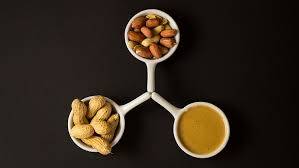Proteins are essential macronutrients that play numerous critical roles in the human body. Here are some of the key benefits of proteins:
1. Building and Repairing Tissues: Proteins are the building blocks of body tissues, including muscles, bones, skin, hair, and nails. They are necessary for the growth, maintenance, and repair of cells and tissues. Consuming adequate protein supports the body's ability to heal wounds and recover from injuries.
2. Enzyme Function: Proteins act as enzymes, which are biological catalysts that facilitate chemical reactions in the body. Enzymes are involved in various metabolic processes, including digestion, energy production, and detoxification.
3. Hormone Production: Some proteins function as hormones, which are chemical messengers that regulate various physiological processes. For example, insulin is a protein hormone that regulates blood sugar levels, while growth hormone promotes growth and development.
4. Transport and Storage: Certain proteins, such as hemoglobin, transport oxygen in the blood. Other proteins transport molecules across cell membranes, carry nutrients in the bloodstream, or store essential substances like iron and vitamins.
5. Immune Function: Proteins are crucial for a healthy immune system. Antibodies, a type of protein, help identify and neutralize foreign substances, such as bacteria and viruses. Other proteins involved in immune function include cytokines, which regulate immune responses.
6. Source of Energy: While carbohydrates and fats are the primary energy sources, proteins can also be metabolized to provide energy when carbohydrates and fats are insufficient. However, it is generally more efficient for the body to use carbohydrates and fats for energy rather than relying on proteins.
7. Satiation and Weight Management: Protein-rich foods are often more satisfying and can help promote feelings of fullness and satiety. Including adequate protein in your diet may help reduce cravings and overeating, making it beneficial for weight management.
8. Muscle Development and Maintenance: Adequate protein intake is crucial for muscle development and maintenance. Protein provides the necessary amino acids for muscle protein synthesis, which is the process of building new muscle tissue and repairing damaged fibers. This is particularly important for individuals involved in regular exercise and strength training.
9. Nutrient Absorption: Proteins play a role in the absorption and transport of various nutrients in the body. For example, proteins help carry fat-soluble vitamins like vitamins A, D, E, and K, facilitating their absorption and utilization.
It's important to note that individual protein needs may vary depending on factors such as age, sex, activity level, and overall health. Consulting with a healthcare professional or registered dietitian can help determine the appropriate protein intake for your specific needs.




No comments yet
Be the first to share your thoughts!